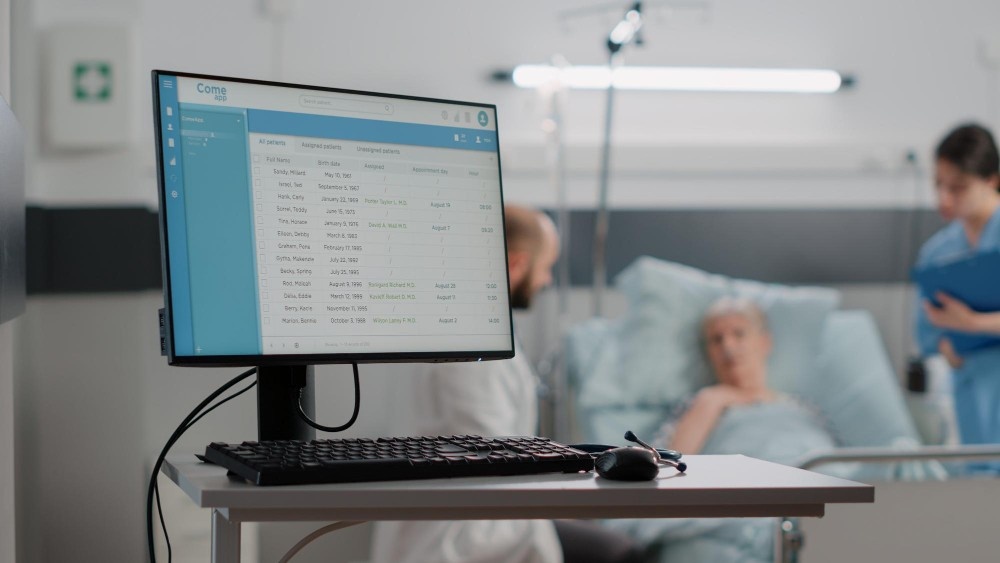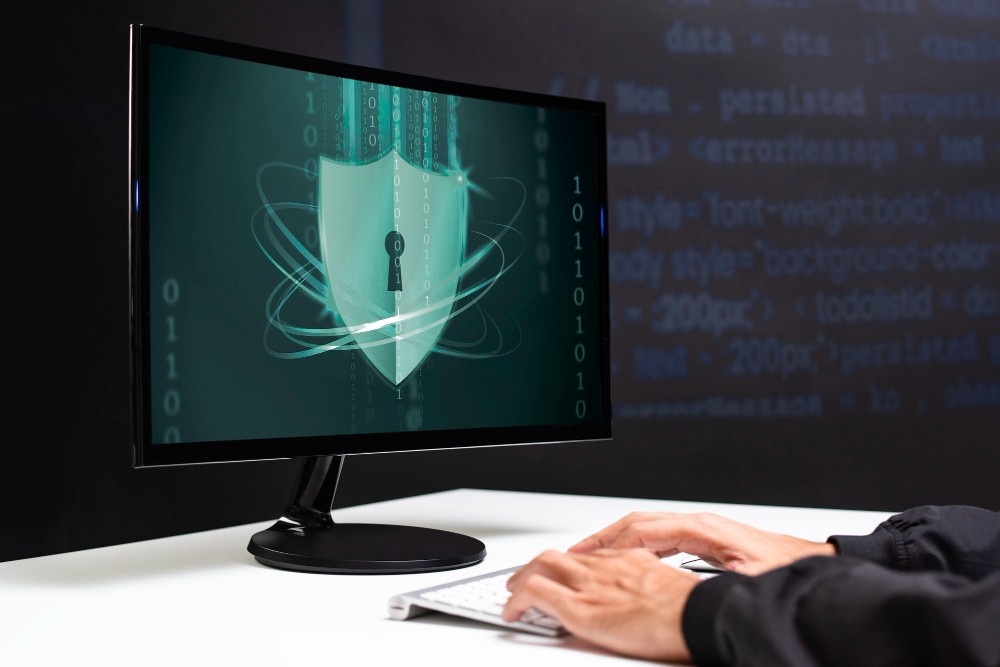In the digital age, the healthcare industry relies heavily on technology to manage patient information and deliver high-quality care. However, this reliance on digital systems has made healthcare organizations prime targets for cyberattacks. Protecting patient data is not only a legal obligation but also a crucial component of maintaining trust and ensuring seamless operations. This article explores the top cybersecurity best practices healthcare organizations can adopt to safeguard sensitive patient information.

1. Implement Strong Access Controls
One of the simplest yet most effective ways to protect patient data is by limiting access to authorized personnel only. Implementing strong access controls ensures that sensitive information is only available to individuals who need it for their roles.
- Multi-Factor Authentication (MFA): Require users to verify their identities using two or more methods, such as passwords, biometrics, or authentication apps.
- Role-Based Access: Assign permissions based on job responsibilities, ensuring that staff only access the data they need to perform their duties.
- Regular Audits: Periodically review access logs to detect any unauthorized access attempts or unusual activity.
2. Encrypt Sensitive Data
Data encryption is a critical defense mechanism for protecting patient information both at rest and in transit. Encryption ensures that even if data is intercepted or accessed without authorization, it remains unreadable.
- End-to-End Encryption: Protect data during transmission by using secure communication protocols like HTTPS.
- Encrypted Storage: Store sensitive information in encrypted databases or files to prevent unauthorized access.
- Key Management: Implement robust key management practices to ensure encryption keys are securely stored and accessible only to authorized personnel.
3. Educate and Train Staff
Human error is one of the leading causes of data breaches in the healthcare sector. Regular training and education can significantly reduce the risk of cyber incidents caused by employees.
- Phishing Awareness: Train staff to recognize phishing emails and avoid clicking on suspicious links or attachments.
- Password Hygiene: Encourage the use of strong, unique passwords and regular updates.
- Incident Reporting: Educate employees on how to report potential security incidents promptly.

4. Keep Software and Systems Updated
Outdated software and systems are common vulnerabilities that cybercriminals exploit. Regular updates and patches address security flaws and improve system performance.
- Automated Updates: Enable automatic updates for operating systems and critical software.
- Vulnerability Scanning: Conduct regular scans to identify and address outdated software or potential vulnerabilities.
- Third-Party Tools: Ensure any third-party applications or devices are updated and secure.
5. Implement Robust Network Security Measures
Securing the network infrastructure is essential for protecting patient data from external and internal threats.
- Firewalls: Use firewalls to monitor and control incoming and outgoing network traffic.
- Intrusion Detection Systems (IDS): Deploy IDS to identify and respond to suspicious activity in real-time.
- Virtual Private Networks (VPN): Use VPNs to secure remote access connections and encrypt data transmitted over public networks.
6. Conduct Regular Risk Assessments
Healthcare organizations should perform routine risk assessments to identify and mitigate potential threats to patient data.
- Data Inventory: Understand where patient data is stored, how it is processed, and who has access.
- Threat Modeling: Identify potential attack vectors and vulnerabilities.
- Mitigation Strategies: Develop and implement strategies to reduce identified risks.
7. Establish a Comprehensive Incident Response Plan
An effective incident response plan is essential for minimizing the impact of a data breach or cybersecurity incident.
- Preparation: Develop a clear incident response policy and train staff to execute it.
- Detection and Containment: Use monitoring tools to detect breaches early and contain them quickly.
- Recovery: Establish backup and recovery protocols to restore systems and data.
- Post-Incident Review: Analyze incidents to improve defenses and prevent recurrence.
8. Secure Mobile Devices and IoT Devices
The proliferation of mobile devices and Internet of Things (IoT) devices in healthcare has introduced new vulnerabilities that must be addressed.
- Device Encryption: Encrypt all data stored on mobile and IoT devices.
- Remote Wipe Capabilities: Enable remote wiping to erase data from lost or stolen devices.
- Device Management: Use Mobile Device Management (MDM) solutions to enforce security policies and monitor device usage.
9. Comply with Regulatory Requirements
Healthcare organizations must adhere to industry regulations, such as the Health Insurance Portability and Accountability Act (HIPAA) in the U.S., to ensure patient data is handled securely.
- Regular Audits: Conduct periodic compliance audits to ensure adherence to regulations.
- Policy Updates: Update policies and procedures as regulations evolve.
- Documentation: Maintain thorough records of compliance efforts, including risk assessments, training sessions, and security measures.

10. Monitor and Respond to Threats in Real Time
Proactive monitoring and threat detection are crucial for identifying and addressing security issues before they escalate.
- Security Information and Event Management (SIEM): Use SIEM systems to collect and analyze security data from multiple sources.
- 24/7 Monitoring: Employ continuous monitoring to identify suspicious activity and respond promptly.
- Threat Intelligence: Stay informed about emerging threats and update defenses accordingly.
Conclusion
Protecting patient data is a top priority for healthcare organizations, requiring a multifaceted approach that combines technology, policies, and education. By implementing these cybersecurity best practices, healthcare providers can minimize the risk of data breaches, maintain compliance with industry regulations, and uphold patient trust.
Contact Us for Cybersecurity Solutions
At Icort Quantum, we specialize in providing tailored cybersecurity solutions for healthcare organizations. Our team of experts can help you implement robust security measures, conduct risk assessments, and stay compliant with industry regulations. Contact us today to learn how we can safeguard your patient data and strengthen your cybersecurity posture.







